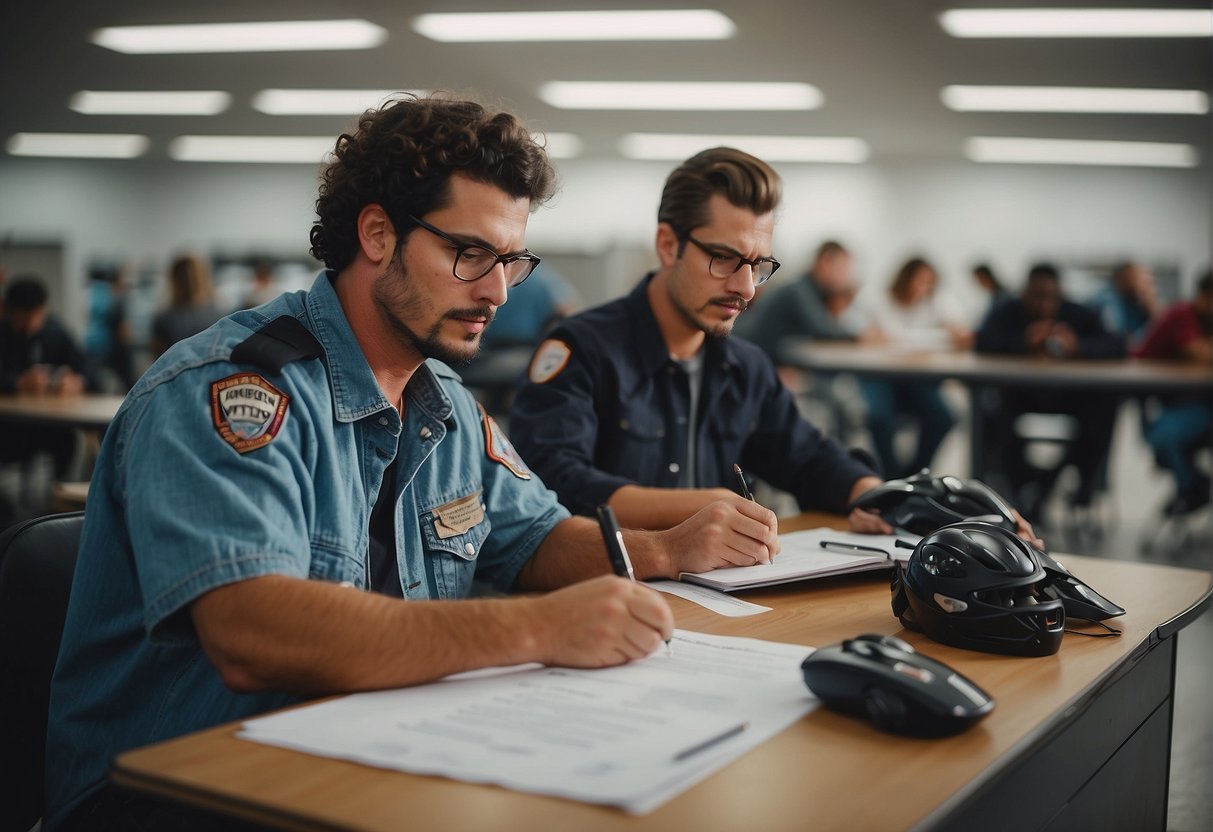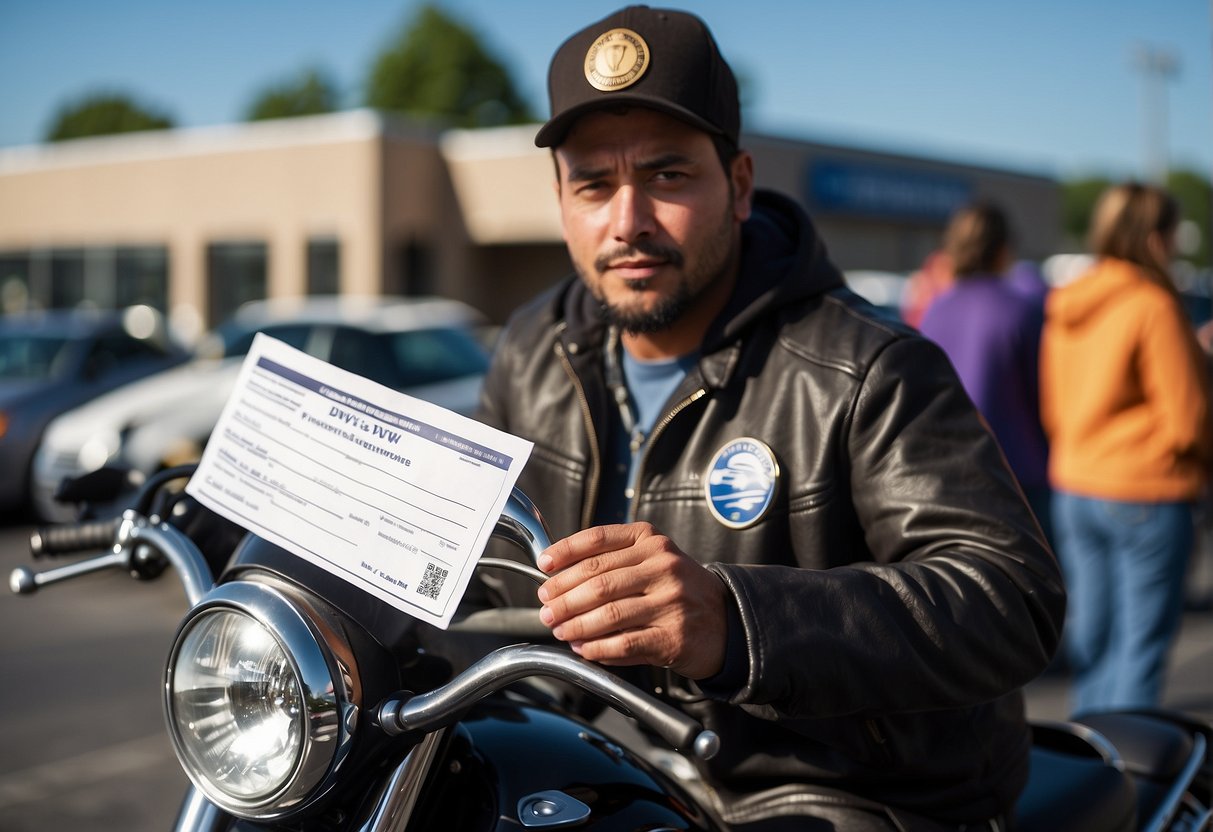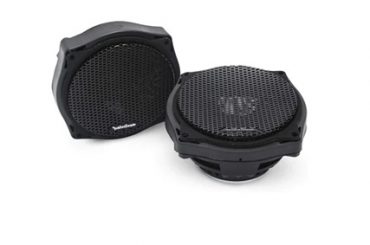Eligibility Requirements for a Motorcycle License

To obtain a motorcycle license in New Jersey, an individual must meet certain eligibility requirements. The following are the requirements that must be met:
- Be at least 17 years old
- Possess a valid New Jersey automobile driver’s license or a valid motorcycle license from another state
- Pass a vision test
- Pass the knowledge test
- Complete a Basic Rider Course (BRC) or obtain a motorcycle permit and pass the motorcycle road test
It is important to note that individuals under the age of 18 must have parental or guardianship consent to obtain a motorcycle license.
In addition, individuals who are new to riding motorcycles may be required to complete a Basic Rider Course (BRC). This course covers the basics of motorcycle safety, handling, and operation, and is designed to help new riders develop the skills and knowledge they need to ride safely on the road.
Overall, the requirements for obtaining a motorcycle license in New Jersey are straightforward and designed to ensure that riders are knowledgeable and capable of operating their motorcycles safely on the road. By meeting these requirements, individuals can obtain a motorcycle license and enjoy the freedom and excitement of riding a motorcycle in New Jersey.
Steps to Obtain a New Jersey Motorcycle License

Obtaining a motorcycle license in New Jersey requires completing a series of steps. These steps include obtaining a permit, passing a road test, and obtaining a full license. Here are the details of each step:
Permit Process
The first step to obtaining a motorcycle license in New Jersey is to obtain a permit. To do this, an applicant must meet the following requirements:
- Be at least 17 years old
- Have a valid New Jersey driver’s license
- Pass a written knowledge test
- Pass a vision test
- Pay the permit fee
Once the applicant has obtained a permit, they may practice riding a motorcycle under the supervision of a licensed rider. It is recommended that the applicant take a motorcycle safety course to learn the basics of riding and safety techniques.
Road Test and Licensing
After the applicant has practiced riding and feels comfortable on a motorcycle, they may schedule a road test. The road test consists of a series of maneuvers that the applicant must perform while riding a motorcycle. The test is designed to evaluate the applicant’s ability to control the motorcycle and follow traffic laws.
If the applicant passes the road test, they will be issued a motorcycle license. The license will be valid for four years and must be renewed before it expires. To renew a motorcycle license, the applicant must pass a vision test and pay the renewal fee.
In conclusion, obtaining a motorcycle license in New Jersey requires completing a series of steps, including obtaining a permit, practicing riding, and passing a road test. It is important to take a motorcycle safety course to learn the basics of riding and safety techniques.
Motorcycle Safety Course Information
In order to obtain a motorcycle license in New Jersey, it is required to complete a motorcycle safety course. The Basic RiderCourse (BRC) is a popular course for new riders, and it is offered at various locations throughout the state. The course is designed to teach riders the basic skills and knowledge necessary to ride a motorcycle safely and responsibly.
The BRC consists of both classroom instruction and hands-on training. During the classroom portion, students will learn about motorcycle controls, basic riding techniques, and safety procedures. In the hands-on portion, students will practice riding skills such as turning, braking, and shifting gears. The course also includes a written test and a riding skills test.
Upon completion of the BRC, students will receive a certificate of completion. This certificate can be presented to the New Jersey Motor Vehicle Commission (MVC) in lieu of taking the road test. However, it is important to note that the certificate must be presented within 180 days of the course completion date.
The cost of the BRC varies depending on the location and provider. The Riding Academy of NJ at Montclair State University offers the course for $355 (source: theridingacademyofnj.org). Other providers may offer the course for a different price. It is recommended to research and compare prices before selecting a provider.
In addition to the BRC, there are other motorcycle safety courses available in New Jersey. The Basic RiderCourse 2 (BRC2) is designed for riders who have some experience but want to improve their skills. The Experienced RiderCourse (ERC) is designed for riders who have been riding for a while and want to refresh their skills. These courses are also offered at various locations throughout the state.
Renewing and Replacing a Motorcycle License
In New Jersey, all residents operating a motorcycle must have a motorcycle endorsement on their existing driver’s license or a separate motorcycle license. To renew a motorcycle license in New Jersey, the driver must have a valid New Jersey driver’s license that is due to expire within six months. The renewal process can be done online through the New Jersey Motor Vehicle Commission (NJMVC) website. Most drivers are eligible for online renewal, even if their renewal form says they are required to visit an agency in person.
To renew their motorcycle license online, the driver must provide their driver’s license number, Social Security number, and date of birth. The NJMVC will also require payment of all licensing fees using an appropriate payment method. Once the renewal process is complete, the driver can print out a receipt to carry with them in case their license expires before they receive the new one in the mail (2-4 weeks).
If a driver needs to replace their motorcycle license in New Jersey, they will need to visit an NJMVC office. If the original endorsement was included on their driver’s license, the applicant must submit form BA-208. If the initial endorsement was associated with a non-driver ID, the applicant must instead submit form BA-207. The NJMVC will require payment of all applicable fees and may require the driver to take a vision test or a written knowledge test.
It is important to note that if a driver’s license has been lost or stolen, they must report it to the police and obtain a police report before applying for a replacement motorcycle license. The police report must be presented to the NJMVC as proof of the lost or stolen license.
Overall, the process for renewing and replacing a motorcycle license in New Jersey is straightforward and can be completed online or in person at an NJMVC office. Drivers should ensure they have all the necessary documentation and payment before beginning the process.
Motorcycle License Fees
Obtaining a motorcycle license in New Jersey comes at a cost. The fees associated with a New Jersey motorcycle license vary depending on the type of license and the age of the applicant.
Basic Fees
The basic fee for a motorcycle license in New Jersey is $24. This fee covers the cost of the license and is the same for all applicants regardless of age.
Examination Fees
In addition to the basic fee, applicants will also need to pay an examination fee. The examination fee for a motorcycle license in New Jersey is $5. This fee covers the cost of the written test, which is required for all applicants.
Endorsement Fees
If an applicant already has a New Jersey driver’s license and is looking to add a motorcycle endorsement, the fee is $18. If the applicant is under 18 years old, they must complete the Basic Rider Course, and the endorsement fee is waived.
Renewal Fees
Renewal fees for a motorcycle license in New Jersey are the same as those for a standard driver’s license. The basic renewal fee is $24, and the examination fee is $5. If the license has been expired for more than three years, the applicant will need to retake the written and road tests, and the fees will be higher.
It is important to note that fees are subject to change, and applicants should check with the New Jersey Motor Vehicle Commission for the most up-to-date information.

